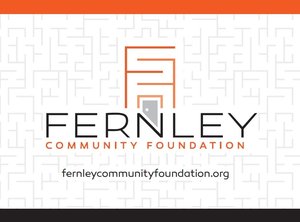Nevada students need better internet access for learning in pandemic, Horsford says
By Ray Hagar, Nevada Newsmakers
Many Nevada students desperately need better broadband internet access during the COVID-19 pandemic, Nevada’s 4th U.S. House Rep. Steve Horsford said on Nevada Newsmakers.
And that improved broadband — so important to today’s long-distance learning systems — could be delivered by the passage of the HEROES Act in Congress, Horsford told host Sam Shad.
Lack of broadband access has been a constant problem in rural Nevada, yet it is also a concern in Nevada’s urban school districts, Horsford said.
“In Clark County, I just spoke with the superintendent this last week, and 25,000 students still have not connected with the school district, one way or another this year,” Horsford said. “They are doing the best they can. I commend the teachers and principals and school leaders. They are doing their part. But with all of these challenges upon challenges, they really are struggling right now.”
About $4 billion in emergency broadband connectivity funding for students and health-care providers was approved in the U.S. House’s corona-virus bill although the U.S. Senate has yet to pass the measure as many in America wait and hope for some relief from Congress.
“We need to provide funding for our schools,” he said. “They are not open. They are not safe to open. We have a number of school districts throughout Nevada that are still not able to proved distance learning to their students.”

Any proposal must be approved by the U.S. House and Senate and signed by the President before it becomes law.
“And so we have worked really hard on the legislation here in Congress to try to get more money for Nevada,” Horsford said. “But unfortunately, we’re playing catch-up because the infrastructure hasn’t been there for a lot of our communities, even in are urban areas.”
The broadband problem may cause some students to remain isolated from learning this school year, Horsford said.
“I’m worried about them losing a year of skills,” Horsford said of Nevada students. “I’m worried about them losing the social interaction that comes from being in school.”
The issue goes much deeper than education, Horsford said.
“Broadband connectivity, this is not just about education,” he said. “It is about health care and again, my (Congressional) district covers 52,000 square miles. I have a lot of the rural counties throughout central Nevada and I’ve gone to the community health clinics and seen directly the fact that because of the lack of broadband, we (rural Nevadans) don’t have quality access to health care for our veterans, for our seniors and for our working people.”
Horsford’s 4th U.S. House district stretches from North Las Vegas in Southern Nevada and north to Yerington in Lyon County and Ely in White Pine County. Horsford was part of the U.S. House effort to approve a $3 trillion HEROES Act in May although the U.S. Senate has yet to approve the measure.
The Trump Administration has supported a $1.5 trillion deal although some members of the Senate have supported a $1 trillion HEALS Act. Some Senate GOP members also supported a $300 million plan, although it has been blocked by Senate Democrats.
Horsford is not putting a number for HEROES Act compromise that he would support.
“I’m on Ways and Means (U.S. House committee) and I am on the budget committee and I am not chasing a number,” he said. “I didn’t chase any number when I was in the state senate and I had to negotiate with former Republican governors.
“What I did then and what I do now is say, ‘What do we need to do for the people of Nevada? They need help with unemployment. We need to extend unemployment through January of 2021 and include the provision of my bill which would actually give people returning to work bonuses of up to $3,600 to help them get back on their feet.”
Many taxpayers and voters are getting impatient for the congressional relief, as unemployment benefits and eviction protections have lapsed for many, Horsford said..
“We need an infusion of investment right now in the American people, in our infrastructure,” Horsford said. “This is part of Joe Biden’s plan, quite honestly, to build back our country. It is part of why I have supported this legislation in Congress but we’ve got more work to do to get these things done, and to work together.”
Many Americans are too busy struggling financially to blame the Democrats or Republicans for the delay of the additional coronavirus relief package, Horsford said.
“Right now, people don’t differentiate who is to blame, they are just worried about, ‘Am I going to be able to afford the rent, come the 1st (of the month)? Am I going to be able to put food on the table? Is my job still going to be there? If I’m furloughed or laid-off, is my health-care benefits going to be in place? That is what my constituents talk to me about, during our telephone town halls and outreach that we do,” Horsford said.
Horsford bristled when Shad pointed out that some Republicans oppose the House version of the HEROES Act because it bails out state pension plans. About 10 million Americans participate in multi-employer pension plans and about 1.3 million of them are in plans that are quickly running out of money, according to the 401K specialist web site.
“This bill does not do what they say it does,” Horsford said about GOP criticisms. “We are not looking to bail out pension plans in state governments. This is to fund essential services that our constituents desperately need.”
The House version includes key aspects of the Emergency Pension Plan Relief Act, according to reports. The amount of money earmarked for them, however, is unclear.




